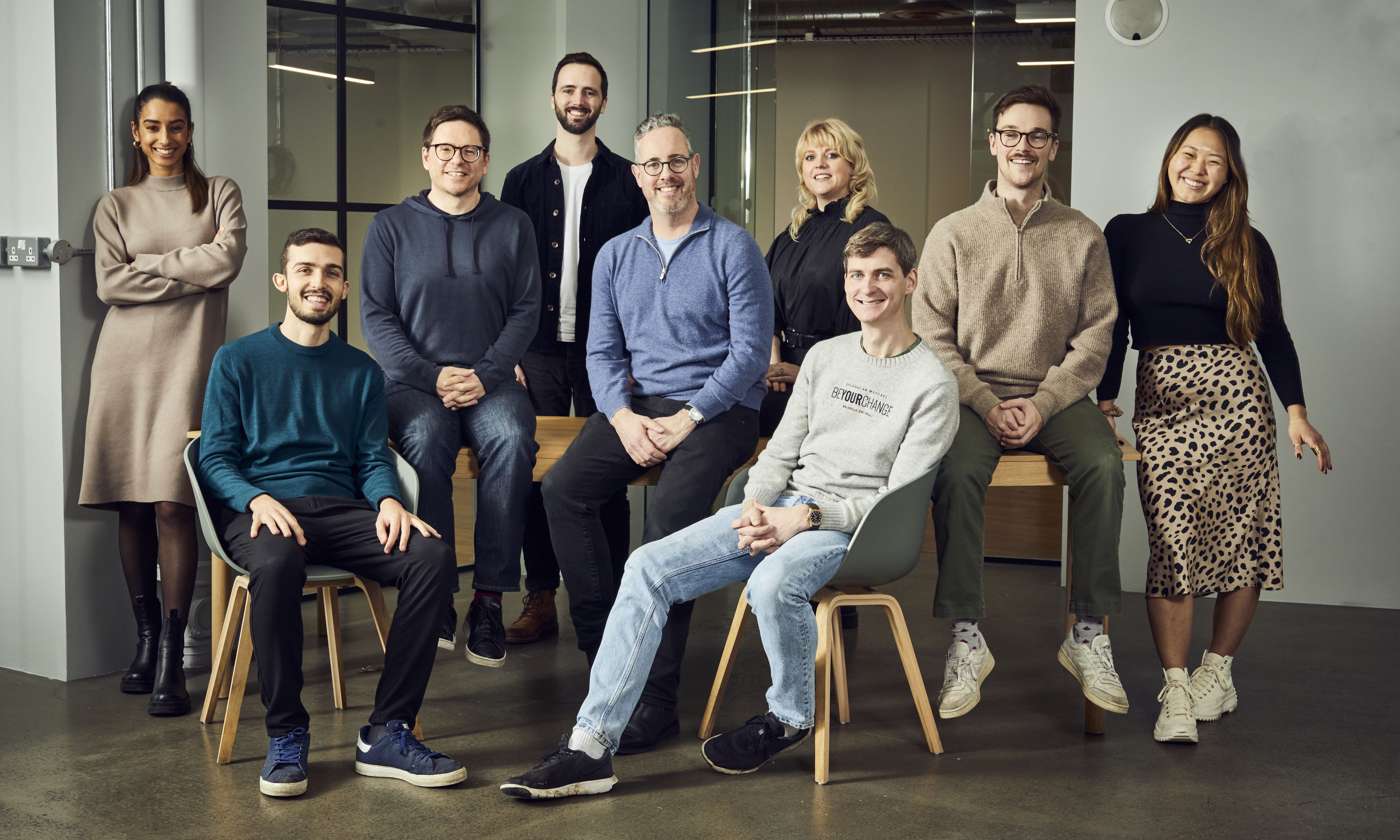Early-stage investments inherently have a higher risk of failing, but these risks also come with potentially higher rewards: getting in at the ground floor of a startup’s journey gives VCs more negotiation clout.
This is particularly true at the very early pre-seed stage, where companies might barely have a functioning product to shout about. And this is something that London-based generalist VC firm Playfair Capital knows all about, given its focus on backing super young startups that have yet to make much of a ripple in their respective industries.
In its 10-year history, Playfair has invested in around 100 companies, including well-established unicorns such as Stripe and Mapillary, a startup that exited to Facebook back in 2020. Those investments were from Playfair’s inaugural fund, which wasn’t focused on any particular “stage” of company.
But Playfair transitioned into more of a pre-seed firm with its second fund, announced in 2019, a focus that it’s maintaining for its new £57 million ($70 million) third fund, which it announced today.
While many early-stage VC funds might look to make a few dozen investments annually, Playfair has kept things fairly trim throughout its history, committing to no more than eight investments each year while ringfencing some of its capital for a handful of follow-on investments. Its latest fund comes amid a swathe of fresh early-stage European VC funds, including Emblem, which announced a new $80 million seed fund last week, while France-based Ovni Capital emerged on the scene last month with a $54 million early-stage fund.
‘High conviction, low volume’
Playfair seeks out founders “outside of dominant tech hubs” as well as founders working on projects that may be more tangential to where the main hype and “buzzy-ness” exists. This is perhaps even more integral if its stated goal is to only invest in a handful of startups each year: they don’t have the luxury of spreading a lot of money around to increase their chances of finding a winner.
“High conviction, low volume” is Playfair’s stated ethos here, and identifying true differentiators is a major part of this.
“I’d say probably half the funding in our portfolio is pre-product, pre-traction,” Playfair managing partner Chris Smith explained to TechCrunch. “And the other half have some sort of really early traction, maybe a MVP (minimal viable product) or a couple of POCs (proof-of-concepts). But we tend to invest where there’s very little in the way of traction.”
It wasn’t that long ago when autonomous automobile technology was all the rage, dominating just about every trade show and tech conference. And there was one specific event several years back, the EcoMotion mobility event in Israel, that Smith says really helps to highlight its investment ethos.
“I went in to look at the roughly 120 companies exhibiting; about 116 of the companies were doing autonomy for cars,” Smith said. “And as an investor, I look at this and think that if you’re writing tons of checks a year, you probably just invest in lots of them and try and find a winner. But we don’t; we only do six to eight [annual investments]. So my view was, ‘I don’t want to play in that space.’ The only real distinction between them was whether they were choosing LIDAR or computer vision. There just wasn’t enough differentiation.”
However, at this same conference, there were four companies doing something completely different. One of them was Orca AI, which was developing a collision-avoidance system for ships, and it was this company from a sea of samey startups that Playfair ended up investing in — both for the company’s 2019 pre-seed funding round and its follow-on Series A round two years later.
“That’s where we like to look,” Smith said. “We like these nascent markets: I call them ‘overlooked and unsexy sectors.’ That’s where we really like to get stuck in, and where I see the opportunity.”
A large chunk of early-stage deals fall apart in the due diligence phase. But if a company doesn’t have any market traction or even a fully-working product yet, how exactly do VCs go about deciding who’s worth a bet? While one of the oldest investment cliches says something about the importance of ‘investing in people rather than companies,’ that is perhaps even more true at the super early stage. And while having previous exits and success in the business world can be a useful indicator, there are many things that can ultimately determine whether a founder or founding team are intrinsically investable.
“We look for a few things, including examples of exceptional performance,” Smith said. “And I think the key thing is that it doesn’t necessarily have to be in the business world, or even in the domain they’re building the company.”

By way of example, Playfair recently re-invested in AeroCloud, a four-year-old SaaS startup from the Northwest of England that’s building airport management software, having also invested in its seed round some two years previous. AeroCloud co-founder and CEO George Richardson had been a fairly successful professional racing driver since the age of 15, but he didn’t really have any direct experience in the aviation sector before setting up AeroCloud.
“He didn’t know anything about airports before he started the company,” Smith said. “But we thought, if someone can podium at Le Mans and exist under such enormous pressure, that’s an amazing character trait path for a founder.”
Obviously, there are many other factors that go into the due diligence process, including meticulous industry research to establish the scale of the problem the startup proclaims to be solving. But some sort of successful track record, in just about anything, is a useful barometer at the early investment stage.
“If you can play a musical instrument to an incredible level, or [if you’re] a professional racing driver, or golfer or whatever it is — I do think that is quite a useful predictor of future performance,” Smith said. “But it’s [investing due diligence] a combination of spending plenty of time with the founders and getting to understand what makes them tick. Then going really deep to support the thesis.”
Insulated
A lot has happened in the world between 2019 and 2023, with a global pandemic and major economic downturn intersecting Playfair’s second and third funds. In the broader sphere of Big Tech, startups and venture capital, we’ve seen major redundancies, plunging valuations and delayed IPOs, but in the early-stage world Playfair inhabits, it’s been a slightly different experience.
“At pre-seed, where we invest, we’re quite insulated from what’s happening in the IPO markets or what’s happening with growth funds,” Smith said.
That’s not to say nothing has changed, though. Its third fund is more than double the size of its second fund, which reflects the size of checks it’s now having to write for companies — rising from an average of around of perhaps £500,000 previously to around £750,000 today, though that figure may creep up toward the £1 million mark.
So what has driven that change? A combination of factors, as you might expect, including the simple fact that there is more capital around and the economic conditions that everyone is currently facing.
“In 2021, there was this crazy peak. Now it’s settled again, but rounds are still significantly higher than they were in 2018-2019,” Smith said. “We’re actually really fortunate in the U.K. to have the SEIS and EIS schemes (tax-efficient schemes for investors), because they brought in a ton of angel capital, and also capital from funds that take advantage of the tax breaks — there’s basically just more money around. I actually think inflation has played a part, too. So whilst in some senses the cost of building a startup has fallen, such as access to certain tools, at the same time, salaries have gone up a lot. So, startup founders back in 2018-2019 might have paid themselves £30,000-40,000 [annually]. You see founders now being paid maybe £60,000-70,000. So founders need more to be able to live comfortably while they build their company.”
This, of course, follows through to the hiring and building of teams, who will also now be expecting more money to counter the cost-of-living increases across society. Throw into the mix, perhaps, the growing understanding that a fledgling company might need a little more runway to stand a chance of succeeding, and all this might go some way toward explaining growing check-sizes in the early seed stages.
“I think that Europe has maybe learned a few lessons from the U.S., which is that there’s no point in putting really small amounts of money into companies, giving them really short runways, putting unnecessary pressure on them and then watching them fail,” Smith said. “You want to give companies enough money so that they’ve got 18 to 24 months, time to pivot, time to figure stuff out. That increases the chances of success.”
Advantages
While not unique in the early-stage investment fray, Playfair has a sole limited partner (LP) in the form of founder Federico Pirzio-Biroli who provides all the capital, and who ran it initially as both a managing partner and LP. Smith stepped in for Federico for the second fund, and Federico has since moved to Kenya, where he now has a more passive role in terms of day-to-day involvement. And, having just one person providing the capital simplifies things greatly.
“It gives us a ton of advantages: it means I don’t spend 40%-50% of my time fundraising, and I can spend my time working with our founders,” Smith said. “I think it’s also just a huge vote of confidence.”
This “vote of confidence,” according to Smith, stems from Playfair having already returned the entirety of its first fund in cash, helped in part by several exits. This number will likely receive a major boost, too, with Stripe gearing up for a bumper IPO — Playfair invested in the fintech giant at its Series C round in 2014 before it narrowed its focus to pre-seed. For its second fund, Smith said they’ve reached somewhere in the region of 95th percentile for TVPI (total value vs paid in capital).
According to Dealroom data, some 19% of seed-stage companies raise a Series A within 36 months. By contrast, Playfair says that 75% of its Fund 2 investments have now also raised a Series A investment, and in 2022 alone, its portfolio companies secured $570 million in follow-on funding from various VCs.
“Success for our founders is basically the same as success for us, which is getting them from pre-seed to a successful Series A round,” Smith said.
And while Playfair does typically pass the lead-investor baton on to another VC firm for subsequent rounds, it will often lead again on the seed round as well as participating in Series A rounds and very occasionally, later. In part, this is as much about displaying confidence as it is providing capital, which is crucial for a startup gearing up to hit the market.
“I think that’s really important, because if your existing pre-seed investor won’t lead your seed, that can be quite a difficult moment to go out to the market, when you may not have that many proof-points to try and get another external investor in,” Smith added.






























Comment